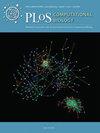设计和实施基于异步在线课程的计算基因组学本科生研究体验 (CURE)
IF 3.8
2区 生物学
Q1 BIOCHEMICAL RESEARCH METHODS
引用次数: 0
摘要
随着基因组学技术的发展,对接受过基因组学分析培训的计算生物学家的需求日益增长,但教师在为生物学学生提供计算机编程、统计和基因组学方面的正规培训时却面临巨大障碍。完全在线学习者是一个重要且不断增长的群体,他们可以为满足这一需求做出贡献,但他们经常被排除在宝贵的研究机会之外,而这些机会大多不具备他们所需的灵活性。为了弥补这些机会上的差距,我们专门为完全在线的生物专业学生开发了基于异步课程的计算基因组学本科生研究体验(CURE)。我们生成了定制的学习材料,并利用可远程访问的计算工具,在基因组学 CURE 的两次迭代中解决了两个新的研究问题,一个是测试生物信息学方法,另一个是挖掘癌症基因组学数据。在此,我们介绍了教学团队如何在为期 7.5 周的 CURE 中,在学生之间分配解决这些问题所需的分析,并同时提供生物学和统计学、计算机编程和专业发展方面的培训。每次 CURE 完成前后进行的相同学习评估结果显示,学生在生物和编码课程目标方面的学习效果显著提高。每周提交一次开放式反馈进度报告,并针对整个课程中遇到的挑战确定自我报告的适应性应对策略。进度报告指出了可以通过信息平台和虚拟会议与教师和同伴合作解决的问题。我们利用 Slack 消息平台实施了异步交流,还成立了异步期刊俱乐部,学生们利用 Perusall 社交注释平台讨论相关出版物。在线基因组学 CURE 取得了意想不到的积极成果,包括学生自愿讨论课程结束后继续研究的计划。这些成果凸显了该基因组学 CURE 在科学培训、招生、学生与导师关系以及学生成功方面的有效性。异步基因组学 CURE 可以为生物医学科学的发展培养一支更熟练、更多样、更包容的人才队伍。本文章由计算机程序翻译,如有差异,请以英文原文为准。
Design and implementation of an asynchronous online course-based undergraduate research experience (CURE) in computational genomics
As genomics technologies advance, there is a growing demand for computational biologists trained for genomics analysis but instructors face significant hurdles in providing formal training in computer programming, statistics, and genomics to biology students. Fully online learners represent a significant and growing community that can contribute to meet this need, but they are frequently excluded from valuable research opportunities which mostly do not offer the flexibility they need. To address these opportunity gaps, we developed an asynchronous course-based undergraduate research experience (CURE) for computational genomics specifically for fully online biology students. We generated custom learning materials and leveraged remotely accessible computational tools to address 2 novel research questions over 2 iterations of the genomics CURE, one testing bioinformatics approaches and one mining cancer genomics data. Here, we present how the instructional team distributed analysis needed to address these questions between students over a 7.5-week CURE and provided concurrent training in biology and statistics, computer programming, and professional development. Scores from identical learning assessments administered before and after completion of each CURE showed significant learning gains across biology and coding course objectives. Open-response progress reports were submitted weekly and identified self-reported adaptive coping strategies for challenges encountered throughout the course. Progress reports identified problems that could be resolved through collaboration with instructors and peers via messaging platforms and virtual meetings. We implemented asynchronous communication using the Slack messaging platform and an asynchronous journal club where students discussed relevant publications using the Perusall social annotation platform. The online genomics CURE resulted in unanticipated positive outcomes, including students voluntarily discussing plans to continue research after the course. These outcomes underscore the effectiveness of this genomics CURE for scientific training, recruitment and student-mentor relationships, and student successes. Asynchronous genomics CUREs can contribute to a more skilled, diverse, and inclusive workforce for the advancement of biomedical science.
求助全文
通过发布文献求助,成功后即可免费获取论文全文。
去求助
来源期刊

PLoS Computational Biology
BIOCHEMICAL RESEARCH METHODS-MATHEMATICAL & COMPUTATIONAL BIOLOGY
CiteScore
7.10
自引率
4.70%
发文量
820
审稿时长
2.5 months
期刊介绍:
PLOS Computational Biology features works of exceptional significance that further our understanding of living systems at all scales—from molecules and cells, to patient populations and ecosystems—through the application of computational methods. Readers include life and computational scientists, who can take the important findings presented here to the next level of discovery.
Research articles must be declared as belonging to a relevant section. More information about the sections can be found in the submission guidelines.
Research articles should model aspects of biological systems, demonstrate both methodological and scientific novelty, and provide profound new biological insights.
Generally, reliability and significance of biological discovery through computation should be validated and enriched by experimental studies. Inclusion of experimental validation is not required for publication, but should be referenced where possible. Inclusion of experimental validation of a modest biological discovery through computation does not render a manuscript suitable for PLOS Computational Biology.
Research articles specifically designated as Methods papers should describe outstanding methods of exceptional importance that have been shown, or have the promise to provide new biological insights. The method must already be widely adopted, or have the promise of wide adoption by a broad community of users. Enhancements to existing published methods will only be considered if those enhancements bring exceptional new capabilities.
 求助内容:
求助内容: 应助结果提醒方式:
应助结果提醒方式:


